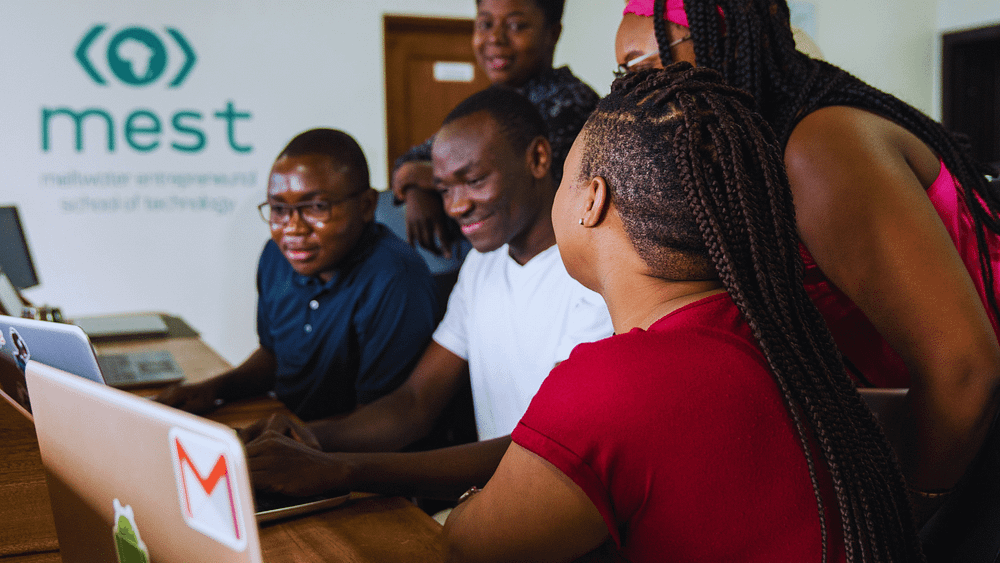ACCRA, Ghana — February 2021: The EC has granted EUR 1.9 million to DIGILOGIC, a three-year Horizon 2020 project to boost cooperation and long-term, sustainable partnerships between European and African Digital Innovation Hubs (DIHs), paving the way for innovators, startups, and SMEs to jointly develop smart logistics solutions in close cooperation with industries and investors.
The DIGILOGIC project is deployed by a consortium comprising three DIHs in Europe — Digital Hub Logistics Dortmund (Germany), VTT (Finland) and Friuli Innovazione (Italy); two DIHs in Africa — MEST (Ghana) and BongoHive (Zambia); the system change facilitator Endeva (Germany) and an SME Prototipi (Nigeria).
Together, these partners will foster the adoption of emerging technologies such as Cloud Computing, Big Data, Augmented and Virtual Reality, Machine Learning, Blockchain, Artificial Intelligence (AI), Smart Devices, Internet of Things (IoT) and Intelligent Transport Systems (ITS) for smart logistics solutions, through the deployment of a dynamic and impactful knowledge transfer process and a targeted implementation programme across Europe and Africa.
Logistics and global supply chain management are much more than transport. Together, they secure manufacturing and trade and by this, the competitiveness of economies. The ongoing COVID-19 pandemic is showing the essential role played by logistics in sustaining the functioning of our societies; delivering vaccines, and emergency supplies while revealing the fragile nodes of global supply chains. Indeed, the sector is facing a plethora of challenges, both from competitors and disruptors and it cannot afford to lag in innovation if a secure, free and independent industry across both continents is to be developed.
DIGILOGIC partners see the horizontally connecting logistics industry at the converging point of interest and priorities for digital innovation for social and business development; a crucial node for Europe’s and Africa’s sustainable prosperity. Applying ICT and other digital technologies to logistics will have a knock-on effect, benefiting other industries from agriculture to manufacturing, local trade to eCommerce, health care to mining. The innovation uptake will provide substantial support to both macro- (e.g. large scale freight movements by air, sea and land, added-value services like warehousing, assembling among others) and micro-business growth in areas such as “last-mile” deliveries. Data, knowledge and competencies sharing are combustible for overall growth and recovery.
Digital Innovation Hubs are the organisations that DIGILOGIC will use to foster the adoption of emerging technologies for innovative solutions, products and services. DIHs create the conditions for — and subsequently nurture, support and promote — innovation, especially by SMEs, young innovators, startups and mid-caps. They also provide access to technology testing, skills development, financing advice, knowledge sharing, collaborative projects, brokerage, market intelligence and networking opportunities.
DIGILOGIC will act as an ecosystem of ecosystems, mapping the existing players (which a recent report by Briter Bridges and the GSMA Ecosystem Accelerator Programme maps at over 600 on the continent), leveraging on DIHs’ competencies and network to analyse the levers of change which should be addressed to exploit innovation, facilitate collaboration and ultimately create market and uptake opportunities for innovators, SMEs and start-ups in smart logistics from both continents.
The EC will facilitate the creation of networks of DIHs which can share nodes/technology platforms, as well as hard and soft competencies to cope effectively with the EU’s digital transformation across all aspects of the economy.
Speaking on their partnership and involvement in the project, Prasanth Kumar, Director of Consultancy at MEST, said “With a goal of equipping the continent’s most promising tech entrepreneurs with the skills required to launch and scale globally successful software companies in the past decade, MEST is extremely proud to associate in the DIGILOGIC, project along with our partners. MEST is also proud to lead the Ecosystem engagement activities and to execute Inclusive Digital and Entrepreneurship capacity building programs for unemployed youth and vulnerable groups.”
DIGILOGIC is working on a smart logistics technology radar, including the latest technical developments and industry needs, with a deep dive into specific European and African challenges and available solutions, to guide a mentoring and go-to-market learning programme.
In June 2021, the project will also launch an interactive eLearning platform with on-demand and live business, design thinking and smart logistics ICT modules. The eLearning platform will be free of charge and accessible at any time with on-demand and live webinars, documentation, dedicated thematic courses, exercises and assignments to enable learners to follow their learning path as per their needs, motivation and time availability.
Leading the creation of the eLearning platform that will extend the work of this project online especially in light of the COVID-19 pandemic, Lukonga Lindunda, Executive Director at BongoHive, an Entrepreneurship Support Organisation based in Zambia added that they were also “excited about the opportunity to extend our work in the Smart Logistics space together with European and African partners on the DIGILOGIC project.”
Ultimately, DIGILOGIC aims to enable the growth of a common innovators’ ecosystem, where talent from both Europe and Africa will benefit from access to technology, knowledge and market opportunities and investments.
In May of next year, the project will launch opportunities for innovators in Europe and Africa to solve four challenges related to the improvement of logistics on both continents. DIGILOGIC will define the topics of the four challenges, based on the real needs and pain points of SMEs, industries, and local governments. Applicants will be invited to propose effective emerging technologies solutions and the selected proposals (up to 12), will be offered a one-year mentoring and coaching programme which will kick off with a three-day Bootcamp in Europe and continue with ongoing virtual and physical mentoring and access to technology infrastructures made available by each DIH. The best projects will be part of DIGILOGIC’s final Demo Day, co-located with a major innovation event in Europe or Africa.
Signed: Digital Hub Logistics, VTT, Friuli Innovazione, Endeva, MEST, Prototipi, and BongoHive
For media inquiries: info@digilogic.africa
For more information on the DIGILOGIC project please see www.digilogic.africa




















